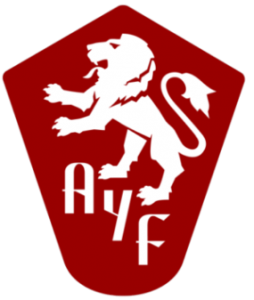Reality and Necessity
Our groups’ time in Gyumri is quickly coming to an end, and before we make our way to Shushi I want to reflect on the city of Gyumri and its current condition. Gyumri is Armenia’s second largest city and in a lot of ways it’s a microcosm of Armenia.
There exists governmental corruption, widespread poverty, and infrastructural neglect. Sadly, remnants of the 1988 Spitak earthquake can still be seen, from the collapsed steeple of —- Sourp Amenaprgich Church, to the countless families still living without running water and electricity in domiks throughout the city. However, the city also has incredible natural beauty, rich history, friendly people, and a bright new generation, who are proud Gyumretsis.
During our time in Gyumri I conducted an extremely informal survey amongst people in the city; kids, adults, really anyone I could have a five minute conversation with. When I asked them about what they saw as the city’s most important needs here were the most consistent responses:
1) Roads- the roads in Gyumri are abhorrent. To a naïve eye, they look almost impassable. To a local, it’s a norm that they have become accustomed to ever since the 70’s/80’s when the last repaving took place. Potholes, boulders, and pits exist where asphalt should, especially in the residential areas, making it a journey to get anywhere.
2) Street lights- the city has incredible architecture, and natural beauty, but walking around in the evenings is difficult because most street lights are non-functional or non-existent. The general gloom leads the city to become a ghost town after dusk.
3) Trash disposal- just teaching kids in our camp that it’s not okay to throw the wrappers of their sandwiches on the floor in the yard of our school was an ordeal, especially when they routinely watch trash just getting burned nearby. The idea of an organized trash pickup that comes a certain day of the week and takes the trash to a proper disposal area, along with public trash bins, doesn’t exist and is the reason behind rampant littering.
It sounds really simple when it’s written down like this. It would make perfect sense for the local government to invest in fixing the roads in the city, which in turn would increase accessibility and ease of transportation (car and foot). It’s a no-brainer to put in, or repair street lights, which would increase public safety and give life to the city outside Republic Square. And it would seem logical to set up a system of trash pick-up and disposal which would increase sanitation and beautify the city. But sadly it’s not that simple.
New York City in the 1980’s was in the grips of one of the worst crime epidemics in its history. This wave declined in the 1990’s and one of the theories to explain the phenomenon is called the “broken window theory”. The crux of the theory says that simple societal problems coupled with neglect can have a far reaching impact. For example, a broken window in a building which is left unrepaired will lead people walking by to think that no one cares, and no one is in charge. Soon enough more windows will be broken and the sense of disorder will spread. Things like unpaved roads, non-functional street lights, and lacking sanitation are equivalent to broken windows, and are an invitation to anarchy.
In New York, city officials began by targeting the subway system. They began by cleaning up all the graffiti, then moved on to busting fare-beaters and drunks. Arresting those who rode the subway without paying, and those disturbing the peace inevitably meant arresting people with outstanding warrants, and people carrying illegal weapons, and this led to an eventual drop in crime. The result was that by 1996 New York City became the safest big city in America.
Thankfully, Gyumri does not have serious issues with violent crime, but the same changes New York saw can be replicated here. The point is that seemingly small changes can bring about revolutionary change. In a city like Gyumri, properly addressing the issue of roads, lights, and sanitation can lead to an increase in civic pride and a brighter future.
What is needed is the will to do so.
Vache Thomassian



Leave a Reply
Want to join the discussion?Feel free to contribute!